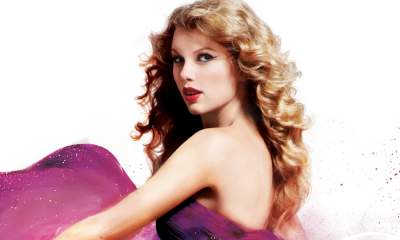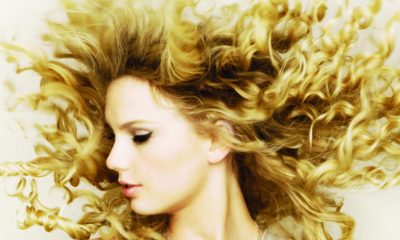Song Reviews
Taylor Swift – “Love Story”
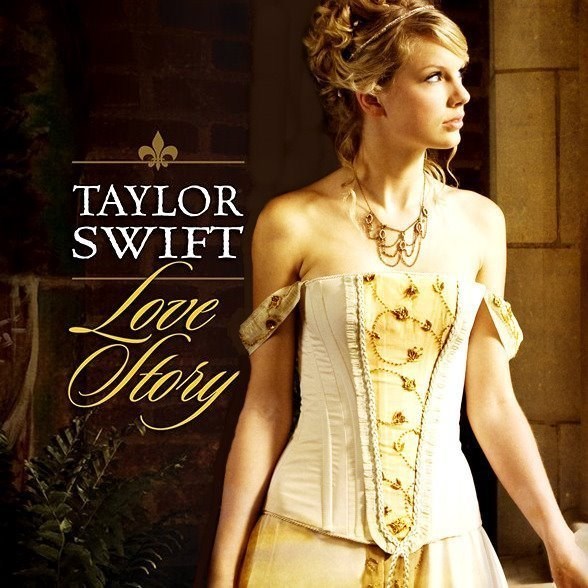
An obvious criticism of Taylor Swift’s “Love Story,” the debut single from her upcoming sophomore effort Fearless, is that the song, muddled by its prominent and clunky Romeo and Juliet references, completely misses the point of one of the English language’s seminal literary works–thereby undermining its own effectiveness. After all, the syrupy, idealized ending to the ‘love story’ Swift constructs is fundamentally delineated from Shakespeare’s tragedy.
The problem with that line of criticism is that it ignores the fact that “Love Story” is clearly not meant as a direct modern parallel to Romeo and Juliet. Rather, Swift utilizes metaphor and symbolism–coupled with our common knowledge of the play–to dramatize the narrator’s own ‘love story.’ That the lyric ultimately resolves into a made-for-Disney cliché doesn’t undermine the fact that, to the narrator, the complications and difficulties surrounding her affair are just as grave as Juliet’s.
Most of us over a certain age are familiar with Romeo and Juliet to some extent, although not all of us have read or seen the play, nor would we be able to enumerate its myriad themes or discuss its broader literary value. What we do know, however (although we may not always phrase it in exactly these terms), is that the play exists as the fundamental basis for the modern love story. From The Graduate to Pretty Woman to You’ve Got Mail, our perception of the love story is shaded by the essential conflict of Romeo and Juliet–two people who aren’t supposed to be together fall in love anyway.
This is the foundation of Swift’s lyric–that any ‘love story’ is rife with complications, peaks and valleys, extreme joy and unbearable heartache. And by comparing the song’s characters to Shakespeare’s, she’s simply alluding to the idea that all love stories are fundamentally the same, regardless of their origin or outcome.
Likewise, when Swift refers to herself as a “scarlet letter,” she’s not literally branding herself an adulterer (the phrase is a reference to Nathaniel Hawthorne’s 1850 novel of the same name), but comparing herself to forbidden fruit; like Hawthorne’s Hester Prynne, who wore a scarlet ‘A’ on her chest to signify her sin, the narrator in “Love Story” is “off limits,” desirable but forbidden by her social enclave (in this case, the narrator’s family, or, more specifically, her father).
So to imply, as the aforementioned line of criticism inherently does, that Swift doesn’t understand Romeo and Juliet (or The Scarlett Letter) is to give the songwriter far less credit than she deserves, especially considering that there are few songwriters in country music today who are willing to make symbolism such a prominent part of their writing. The fact that Swift, arguably the genre’s biggest star at the moment, has done so here is a breath of fresh air, even if the song does otherwise follow a disappointingly unoriginal pattern.
Still, it’s tempting to deride “Love Story” as teenybopper pop country–and it is, at best, pop country. There are certainly criticisms that can be levied against it, including the fact that its first verse, boasting images of balconies and ballgowns, leaves a somewhat blurred aesthetic; is that scene really happening, or is it taking place inside the narrator’s head, a dramatized version of real-life events?
“Love Story” also feels cluttered, with too much information dispensed at too rapid a pace, especially considering that its running time clocks in at around four minutes–four minutes which seem like less considering the song’s pulsing beat and slick, pop-based production.
None of these criticisms, however, will have a major impact on the song’s effectiveness, or on its ability to strike a resonant chord with its intended audience, a group for which this ’story’ is essentially relevant. What’s more, “Love Story” shows an artist willing to take chances by venturing from the format’s standard song structure, and to let her personality shine through–even if the lyric generally follows a well-worn path.
It’s not brilliant–in fact, much of it is quite cliché. But there’s still an emanating sense that Swift is a unique talent, and while those of us predisposed to preferring a less glossy style of country music might not find her music particularly appealing, “Love Story,” like her previous work, hints at an artist who might just surprise us someday.
- Lists13 years ago
Top 10 Country Music Albums of 2010

 Interviews5 years ago
Interviews5 years agoJohn Rich – The Interview

 Interviews5 years ago
Interviews5 years agoHoneyhoney on Hiatus: Revisit our 2008 Interview with Suzanne Santo
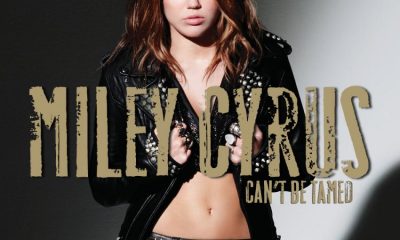
 Album Reviews14 years ago
Album Reviews14 years agoAlbum Review: Miley Cyrus – Can’t Be Tamed
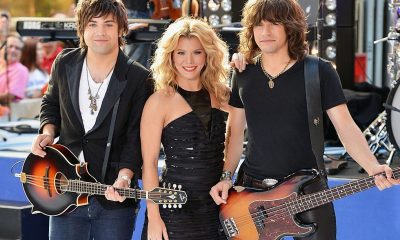
 Song Reviews6 years ago
Song Reviews6 years agoThe Band Perry – “Hip To My Heart”
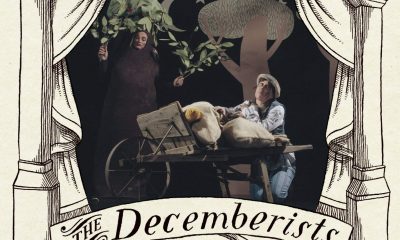
 Columns5 years ago
Columns5 years agoThe Link Between Folk Music’s Past and Present
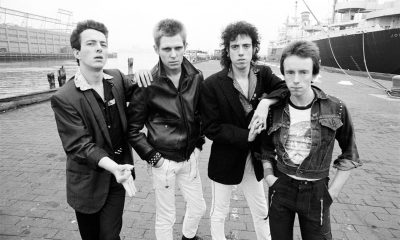
 Columns5 years ago
Columns5 years agoIs Marketing Killing Rock and Roll?

 Interviews5 years ago
Interviews5 years agoCatching up with Chris Hillman of The Byrds & The Desert Rose Band


